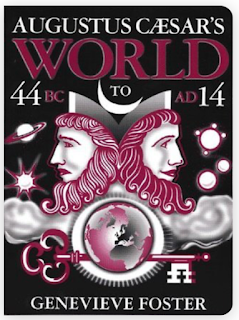The book I will be narrating from today I partially* read over 10 years ago so it will be fun to revisit it. I am reading along with others over at the AmblesideOnline forum. This installment is over the Prologue, pages 11-13.
*partially is a very generous way of saying I skimmed before or during narrations given by my kids while we were homeschooling
O, an alien "park ranger," is making his rounds of the planets. It's been one thousand years since his last visit to planet Earth. Much like the last visit, he sees war, violence, murder, envy, strife, but he encounters a pervasive hopelessness that he hadn't encountered before, as well as prosperity that doesn't normally go along with such an attitude.
He sets out to find out why there is a hopelessness. He starts at the institutions to talk with professors but none can be bothered; they are busy reading, writing, or they just want to capture him to study him and display their "Exhibit A" to the world.
Next he goes to the, what I'll call, common folk. These are those shopping, working day-to-day, every day people. (I think the authors are more specific about the kinds of people these are, based on what they are doing or their jobs, but I can't recall those details.) But none seem interested in helping him (or themselves) understand the pervading sense of hopelessness (they don't seem to understand even to what he is referring), instead they would rather plan their next fantasy football team, shop online, or play gory video games. It is suggested that he try one of the fancy coffee shops if he wants to talk philosophy. So he heads downtown and enters the first he comes to.
There he hears a mixture of complaints: about this or that politician, a war or there. O points out the existence of such things have always been, but the occurrence of such complaints among people at fancy coffee shops was rather new. The last time he'd encountered something similar was in Rome, but even then, it was an exception and not the norm.
A "self-published poet in Birkenstocks" says that it's obvious: we are just dust in the wind; we are nothing, mean nothing. He knows this because Hawkins, Sagan and some other name has said so. O still doesn't understand this and asks for proof. Finally a religion professor states that we don't rely on proof anymore, we all have to make our own meaning from this world and live that out. Those in the coffee shop agree.
O returns to his own planet and relays what he's found: despair amidst unparalleled prosperity. His fellow beings cannot believe him. He shares his findings, a nicely done powerpoint to prove to them. They are just as confused as he!
They conclude that a poison has entered human culture. Science has proven that life is meaningless and done it so thoroughly that no one ventures to present an argument.
The aliens are fiction; the poison is real. Wiker and Witt have written this book as an antidote.





No comments:
Post a Comment